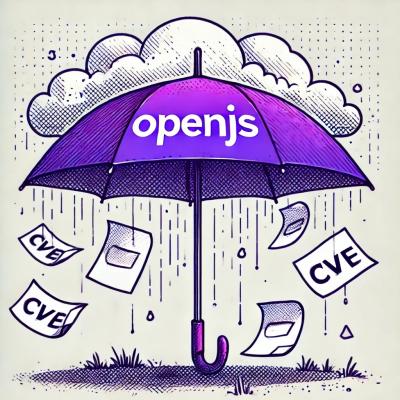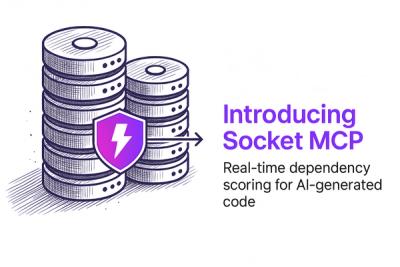DEPRECATION WARNING: This gem is now deprecated. Please do not use it for new projects since it is unmaintained.
LevelUp Ruby SDK
Early alpha version of the LevelUp Ruby SDK - designed for e-commerce and online
food ordering sites to provide the option to easily pay with a LevelUp account.
Subject to drastic change without warning for duration of alpha period.
Installation
Add this line to your application's Gemfile:
gem 'levelup'
And then execute:
$ bundle
Or install it yourself as:
$ gem install levelup
Documentation

Usage
Do once per LevelUp-powered application:
- Create an instance of the LevelUp client and authenticate it.
api = Levelup::Api.new
Levelup::Configuration.base_api_url = 'https://sandbox.thelevelup.com/'
api_key = '23eef8c2895ce66eb4500bb5e324b200f5339e6fe6d8665f6de0205f43f3b563'
client_secret = '4d71e958b9fb6a62af624390c4ef394df15d168ea12b3b12735643ff0694520f'
auth_response = api.access_tokens.create_for_app(
api_key: api_key,
client_secret: client_secret)
api.app_access_token = auth_response.token
Do once per merchant account
- Authenticate merchants using LevelUp email and password
username = 'sandboxdevexample@thelevelup.com'
password = 'fod2yau4flu6vok6'
merchant_token = api.access_tokens.create_for_merchant(
api_key: api_key, username: username, password: password)
Do for each merchant location
- Prompt merchant to map LevelUp locations to each of their online ordering locations
locations_response = api.merchants(merchant_id).locations.list(merchant_access_token)
location = locations_response.locations[0]
location_id = location.id
Do for each customer
- Ask a user for permission to make an order for them (alternatively you can use our
OpenID or
Oauth2 flows).
For more information on available permissions, see the
LevelUp permissions list
api.apps.permissions_requests.create(
email: 'user@email.com',
permission_keynames: ['create_orders', 'read_qr_code'])
- Retrieve a user's QR code
qr_code_response = api.qr_codes.get(customer_token)
qr_code = qr_code_response.code
- Create an order for the specified merchant.
discount_response = api.locations(location_id).merchant_funded_credit.get(
qr_code, merchant_access_token)
check_total_due_including_tax = 110
exempted_item_total = 0
spend_amount_requested = 110
tax_amount_due = 10
identifier_from_merchant = '01234'
check_items_array = [
{
charged_price: 350,
description: 'Non-poisonous, supplies vital nutrients',
name: 'Food',
quantity: 1,
sku: '123abc',
category: 'Edible Things',
standard_price: 350
}
]
credit_to_apply = Levelup::Utils::PaymentCalculator.levelup_discount_to_apply(
check_total_due_including_tax: check_total_due_including_tax,
exempted_item_total: exempted_item_total,
merchant_funded_credit_available: discount_response.discount_amount,
payment_amount_requested: spend_amount_requested,
tax_amount_due: tax_amount_due,
)
order_response = api.orders.create(
identifier_from_merchant: identifier_from_merchant,
location_id: location_id,
spend_amount: spend_amount_requested,
items: check_items_array,
merchant_access_token: merchant_access_token,
user_access_token: qr_code)
calculator = Levelup::Utils::PaymentCalculator.new(
discount_applied: credit_to_apply,
gift_card_credit_available: discount_response.gift_card_amount,
spend_amount_returned_from_levelup: order_response.spend_amount,
tip_returned_from_levelup: order_response.tip_amount
)
calculator.gift_card_payment_to_apply
calculator.gift_card_tip_to_apply
calculator.levelup_payment_to_apply
calculator.levelup_tip_to_apply
calculator.total_gift_card_payment_to_apply_including_tip
calculator.gift_card_remaining_balance_after_payment
calculator.total_levelup_payment_to_apply_including_tip
The LevelUp Ruby SDK mirrors the API as closely as possible, so the call for any given endpoint
can be inferred from its URL.
For instance:
api.apps.permissions_requests.create
api.user_addresses.list
api.orders(uuid).refund
Some requests that return large lists are paginated and only return a small number of values per
request. The LevelUp Ruby SDK handles this by allowing you to request the next page from the
paginated response.
For instance:
locs_response = api.apps(123).locations.list
locs_response.locations
locs_response.next_page?
next_page_response = locs_response.next
Errors
If the LevelUp API returns a 422 error response, it will also return an object containing useful
info about the error. It can be handled like so:
error = api.access_tokens.create_for_app(
api_key: 'bogus_api_key',
client_secret: 'bogus_client_secret'
)
puts error.success?
puts error.headers['Cache-Control']
puts error.status_code
puts error.errors[0]
puts error.errors[0].message
puts error.errors[0].property
Contributing
cd path/to/my/ruby-sdk-folder
bundle exec rubocop
- Ensure that all RSpec tests pass (and write some for your code!)
cd path/to/my/ruby-sdk-folder
bundle exec rspec
- Commit your changes (
git commit -am 'Add some feature')
- Push to the branch (
git push origin my-new-feature)
- Create a new Pull Request




